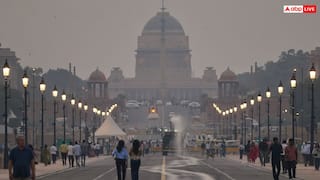Israel Protests: Doctors Announce Strike As Parliament Clears Key Bill Curbing Supreme Court's Powers
Protesters took to the street in large numbers as the Israeli parliament passed a contentious key bill curbing some powers of the country's Supreme Court in a bid to 'reform' the judiciary.

Protests have intensified across Israel after the country’s Parliament on Monday cleared the first bill of judicial reform introduced by Prime Minister Benjamin Netanyahu, reported Reuters. Now, doctors across the country have announced a strike against the passing of an important part of the bill, reported The Guardian. It added that the Israeli Medical Association, which says it represents about 95 per cent of doctors, said it would hold a 24-hour protest. However, they said that the strike will exempt medical care in Jerusalem and emergency care across the country.
Notably, the association held a brief strike last week as a warning, arguing the judicial overhaul would “devastate the healthcare system”, the report mentioned. As per Intern Doctors Organization in Israel, the doctors will be joined by nearly 73 per cent of interns.
The controversial amendment limits the Supreme Court's powers to void certain government decisions if it finds them "unreasonable". It was passed by a 64-to-0 vote after opposition lawmakers abandoned the session in protest. "For shame!" slogan echoed in the House as the bill was made through the Knesset (Israeli Parliament).
According to the report, demonstrations against the amendment started early in the day and police dragged away the protesters. People chained themselves to posts and blocked the road outside parliament on Monday, Reuters mentioned.
The situation turned more serious as thousands of Israelis took to the streets across the country, blocking highways and scuffling with police. At least 19 people had been arrested on Monday, stated Reuters citing Israeli police.
Meanwhile, the government maintained its firm stand and Justice Minister Yariv Levin called Monday's vote a "first step".
Notably, the passed amendment is part of wider judicial changes the Israeli government announced in January this year, soon after Netanyahu was sworn in. The government says that the change is needed to push back against ‘overreach’ by a Supreme Court, adding ‘it has become too politically interventionist’.
The first bill proposes a simple majority in the Israeli Parliament to overturn Supreme Court decisions. However, last month, in an interview with the Wall Street Journal, Netanyahu said he was no longer seeking to grant Parliament the authority to overturn Supreme Court rulings.
"The idea of an override clause, where the parliament, the Knesset, can override the decisions of the Supreme Court with a simple majority... I threw that out," Netanyahu said in the interview.
The second bill proposes letting the government have a decisive say on who becomes a judge, including in the Supreme Court, by increasing its representation on the panel that appoints them.
A political watchdog group and the centrist opposition leader said they would appeal against the law at the Supreme Court, Reuters mentioned. As the protests raged, PM Netanyahu, in televised remarks, said he would seek dialogue with the opposition with the aim of reaching an all-inclusive agreement by November end.
"We all agree that Israel must remain a strong democracy, that it must continue protecting individual rights for everyone, that it will not become a state of (Jewish law), that the courts will remain independent," said Netanyahu, as quoted by Reuters.
Subscribe And Follow ABP Live On Telegram: https://t.me/officialabplive






































